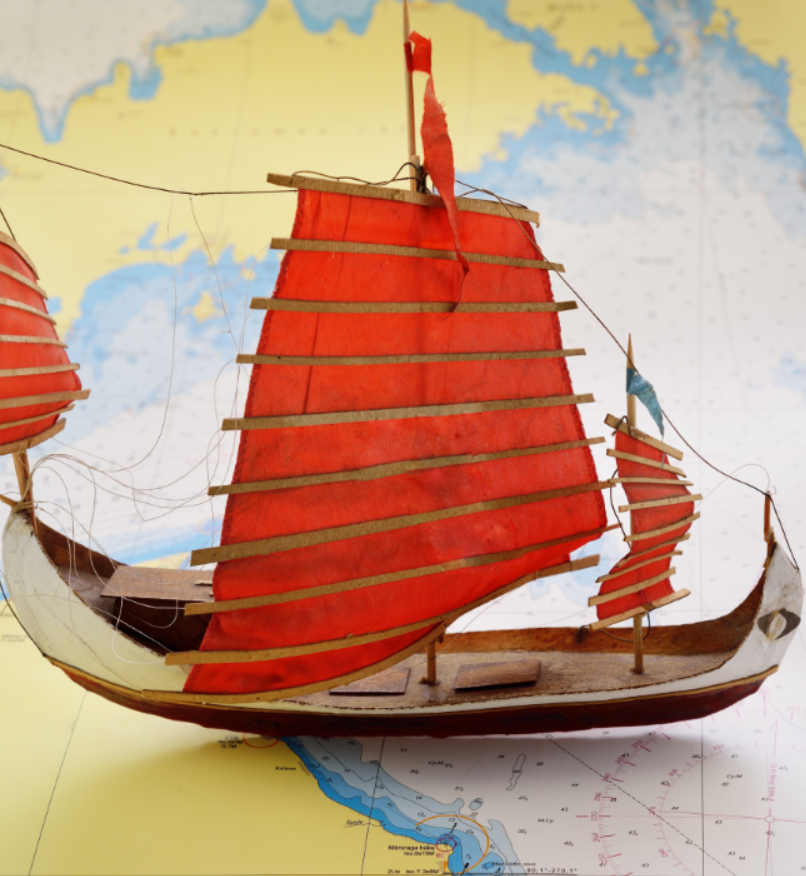- UNITS
- Unit 1 - Ancient Maritime Law
- The Game of Words
- Prof. Quinn and Paul's Conversation
- Eloquence
- Latin Phrases
- Language Knots
- Test Corner
- LEARNING

♦ This introductory exercise aims to give you a feel for the sound and rhythm of the language, whilst presenting an overview of the maritime topic at hand. ♦ By reading and then listening to the accompanying audio, you’ll discover how words are pronounced and some simple sentence structures. ♦ Once you are comfortable with how the written and spoken words are connected, you’ll be ready to focus on keywords in the next exercise.
Ancient Maritime Law
Maritime law is international; it has the same sources in the USA, Europe, Asia and beyond. Maritime law must be agreed upon by all nations, because it deals with global trade and seafarers from all states, who are often sailing on international waters.
Laws on land can be very different from country to country, but laws on the ocean have a history of smoother and more consistent evolution. As a general pattern, the development of maritime law has followed the regions or states that were dominant at sea throughout history.
Customs between the earliest seamen guided the first trading activity across the Arabian and the Mediterranean Seas. Customs are informal rules created from shared behaviours. The most ancient legal code known in history is the Code of Hammurabi, developed 3000 years ago in Mesopotamia. People believe that Hammurabi’s code was built upon laws from ancient Akkadia and Sumeria, and this ancient text includes rules and solutions for the collision of ships and for ship rental. Egypt inherited its maritime law from Mesopotamia as they became the dominant Mediterranean power. Then, around 1700 BC, the Phoenicians took over their leading position. This role in turn fell to the ancient Greeks around 800 BC, who had perhaps the largest influence on maritime law before the modern era.
Shipping was vital to the Greeks as they had colonies to administrate and trade with across the sea. Therefore, to ensure timely and reliable decisions, they had separate courts concerned only with cases concerning maritime incidents. Rhodes was the most active city-state regarding maritime law, and its legal code for shipping became known as the Rhodian Sea Law, or Lex Rhodia.
Our knowledge of Lex Rhodia comes from the Romans. Emperor Augustus absorbed Rhodian Sea Law into Rome’s own legal system. The influence of Lex Rhodia can be seen through history from Roman law to today’s International Maritime Law. The cargo jettison rules in Rhodian Sea Law are detailed in the Digests of Justinian. These rules concern the ownership of property thrown off a ship to try and save the craft. In present-day maritime law, the same concepts are known as general average. Our use of these laws today closely aligns with what was written in Latin 1500 years ago.
Pompey, a Roman statesman, agreed with the Greek historian Diodorus Siculus’s statement: “the people who are masters of the sea will be masters of the world”. The Greeks and the Romans held the same attitude in this respect, and the later European empires would prove it again and again. As different regions gained naval power and ‘mastered the world’, each such society led the continuing development of maritime law, right up to the modern day.
